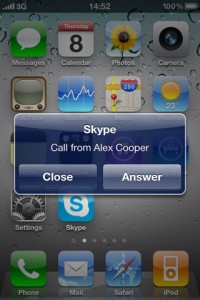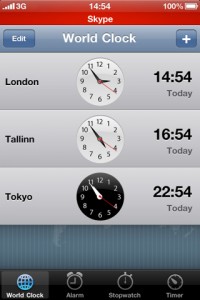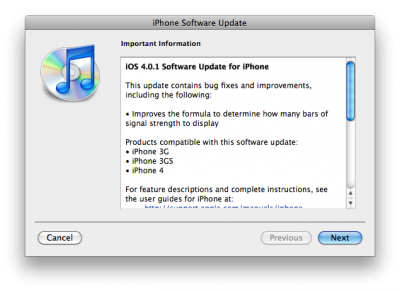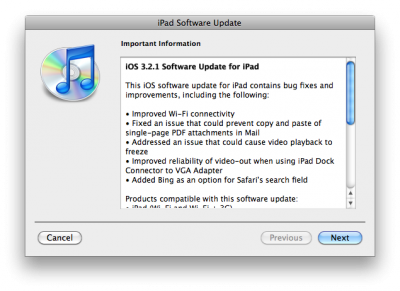News tagged ‘3GS’
HowTo activate iPhone without original SIM card
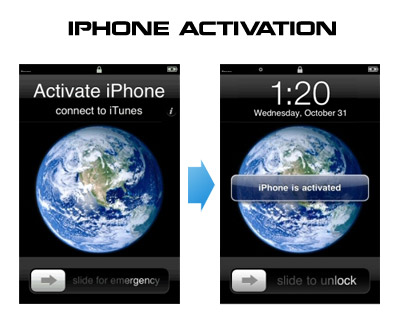
UPDATE: Now you should use RedSn0w, PwnageTool or Sn0wBreeze to activate.
Having problems activating your iPhone? Don't have original SIM-card? Cannot get passed emergency unlock screen? We have a solution:
If you have iPhone 3G, just use redsn0w to jailbreak and hactivate. If you have iPhone 3GS or iPhone 4 follow these instructions:
If you are already Jailbroken:
So you have an iPhone with iOS 4.0, but don't have the original SIM and stuck on the Emergency Call Screen:
- Download ifunbox software ()
- Run ifunbox software and sync with phone
- Go to /private/var/root/Library/, delete original lockdown folder and put this folder after you extract it from the zip file
- Restart phone
If you are not jailbroken:
 Leave a comment, read comments [12]
Leave a comment, read comments [12]
Ultrasn0w 1.0-1: unlock for iPhone 4
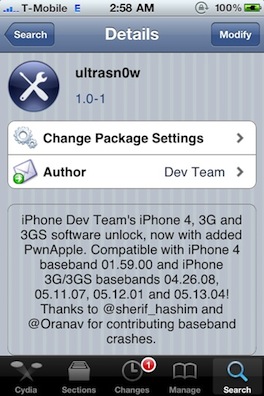
DevTeam finally released iPhone 4 unlock software. The new version 1.0-1 of ultrasn0w now works for:
- iPhone4 baseband 01.59
- iPhone 3G/3GS basebands 04.26.08, 05.11.07, 05.12.01 and 05.13.04
To install run Cydia and add the repo: repo666.ultrasn0w.com
New Survey Reveals That iPhone 3GS Drops Calls More Often Than iPhone 4
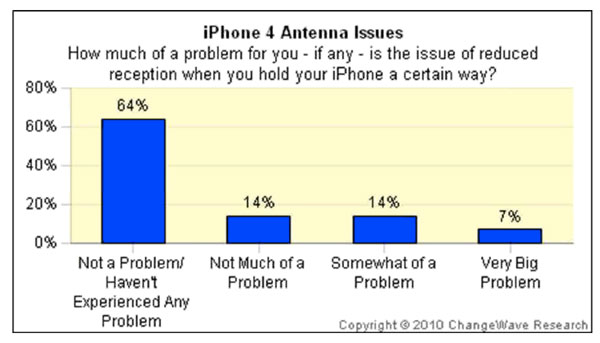
Today ChangeWave Research revealed the results of its survey on iPhone 4. 213 new handset owners were questioned in a few weeks after the launch of the latest Apple's smartphone, between July 19 and 28. Here is a list of facts that were revealed:
- In June 6.3% of iPhone 3GS owners experienced dropped calls, in July only 5.2% of those who use iPhone 4 had dropped a call at least once. ChangeWave Research's vice president Paul Carton says that means that iPhone 4 is quiet better at making calls:
"Despite all of the issues surrounding the antenna, in actuality iPhone 4 owners reported experiencing fewer dropped calls on the average than iPhone 3GS owners".
Australian Daily Telegraph: There Is No Antenna Issue In iPhone 4
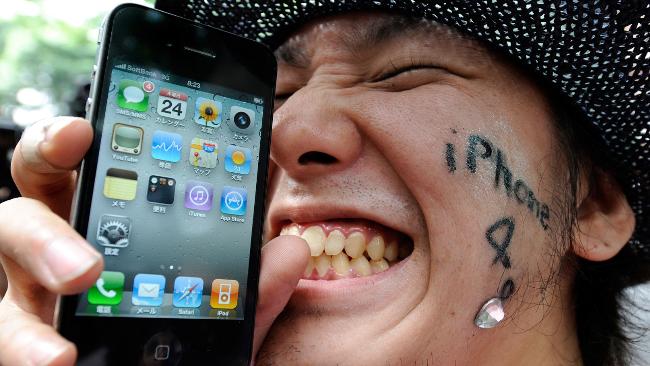
Recently tech journalist Stephen Fenech wrote an interesting iPhone 4 review for Australian Daily Telegraph. Besides saying that iPhone 4 is "a massive jump" in the smartphone industry, Fenech also tried to reproduce the antenna issue. To make sure his results are correct he used his phone on 6 different Australian carriers - Optus, Telstra, Vodafone and 3 other networks in different parts of Sydney. Here is his conclusion:
"I tried the 'death grip' on the bottom left while making test calls in areas I knew to have weaker reception and the times I did manage to reduce the signal bars... my calls were still not affected. The worst thing that happened was a web page I was loading timed out but after refreshing it came up fine. I even managed to watch a YouTube video over 3G while in the 'death grip.'"
Fenech also added that the "death grip" is unnatural and iPhone 4 call quality was significantly improved in comparison to iPhone 3GS.
 Leave a comment, read comments [1]
Leave a comment, read comments [1]
Walt Mossberg Reviewed iPhone 4
After using two iPhones 4 for six weeks Wall Mossberg finally reviewed the newest Apple’s handset.
So, one phone was obtained by Mossberg personally, while the second was provided by Apple. Walt found that iPhone 4 works better than iPhone 3GS in those areas where there is a "strong AT&T coverage", but when it comes to weak coverage areas iPhone 3GS performs better, because it drops less calls and 'no service' status can be seen rarer. That became a reason for Mossberg to not recommend iPhone 4 with its limited AT&T data plans to people who "live, work or travel" in areas with poor reception signal.
Walt also found that the 'death-grip' issue is not a problem as it causes signal bars to fluctuate only and even to rise in some cases.
Apple investigates problems with iOS4 on iPhone 3G
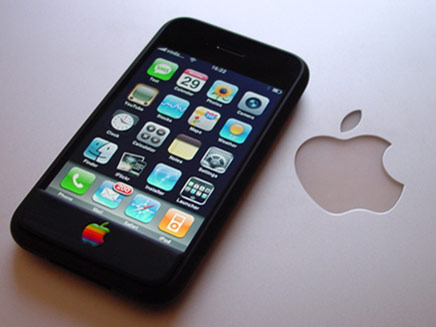
According to the Wall Street Journal, Apple started to investigate the compatibility problems of iOS4 and iPhone 3G. The company's spokesman explained that such a decision was made because of numerous user reports, which reveal that after installing iOS4 on iPhone 3G the latter started to work more slowly, became overheated and its battery life had significantly decreased.
Some people are annoyed and disappointed because of the situation:
“This phone has gone from being a dream to constantly annoying me. Not a way to make friends. I would upgrade to an iPhone4, but I’m feeling pretty angry that Apple has forced my hand by making my 3G unusable”.
iOS4 version for iPhone 3G does not support multitasking and Bluetooth keyboards, which was disabled because of RAM requirements, according to Apple.
HowTo speed up your iOS 4 on iPhone 3G and iPod touch 2G
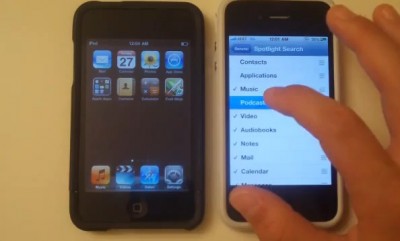
iPhone 3G and iPod Touch 2G work a bit slow with iOS 4. The video below shows a nice trick that will put the speed back in your device. You need to go do Settings and deselect Spotlight.
On iPod Touch 2G go to Settings - General - Home Button - Spotlight Search. On iPhone 3G go to Settings - General - Spotlight Search. Then uncheck all the searches that you don't use. This will increase the speed of your device.
This also works on iPhone 3GS and iPhone 4, however the speed increase is very small there.
Watch the video:
Canada will get unlocked iPhone 4
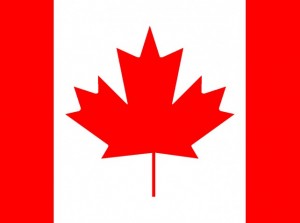
Apple’s iPhone 4 handset is scheduled to hit Canadian stores this Friday. According to a recent report by CBC, Canadian customers will have the option of buying the phone unlocked, directly from Apple:
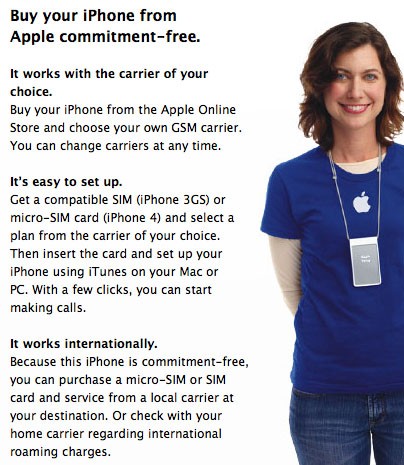
Unlocked iPhone 4 is not going to be cheap.
iPhone 4 Will Be Shipped To South Korea Later For Reasons Unknown
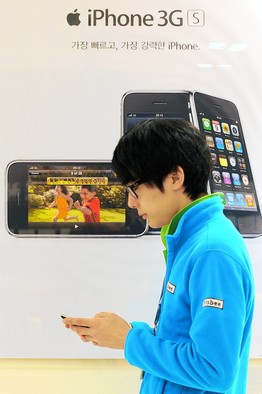
This Friday iPhone 4 will become available in 17 more countries, but South Korea will not be among them. Steve Jobs explained why:
"It's going to take us a little longer to get government approval there".
Korean government and people were discomfited by these words. According to The Wall Street journal, there is nothing to approve yet.
"The main communications regulator said last week that neither Apple nor KT [local iPhone carrier] had yet submitted the iPhone 4 for approval here".
Testing performance of all iPhones together: iPhone 2G, iPhone 3G, iPhone 3GS and iPhone 4
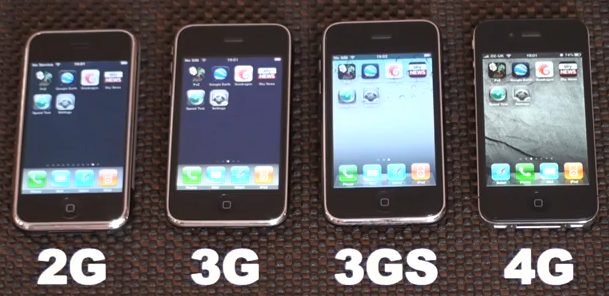
Here is an interesting video demonstrating an iPhone speed test across all four generations of the smartphone (iPhone 2G, iPhone 3G, iPhone 3GS and iPhone 4).
It’s fantastic to see how far the speed of the iPhone has advanced. As you’d expect, the iPhone 4 is obviously the fastest, closely followed by the iPhone 3GS. Interestingly, the difference between the 3GS and 3G is pretty big, as is the difference between the iPhone 3G and the first-gen handset.
Watch the video:
iOS4 vs. WP7 in Browser Speed Test
This week developers started receiving Microsoft’s test units, which will allow them to test the performance of their apps for WP7 instead of using an emulator. The test smartphones are produced by Samsung and LG and have a Technical Preview version of Windows Phone 7, and guys at NewsGeek decided to compare its browser speed with iPhone 3GS' that runs on iOS 4.
Since the difference in speed is so huge it is noted that both of the phones used 3G network (not Wi-Fi) and iPhone 3GS is a completely finished product, while Samsung's test unit is a prototype with an unfinished OS that is still in development.
Newsgeek also found Internet Explorer in the Windows Phone 7 to be "surprisingly competent and quick" though it was mostly built off of IE7's desktop version.
Skype now supports multitasking
Today Skype released a new version with support of multitasking ().
What's New In Version 2.0.1
- Run Skype in the background with multitasking in iOS4.
Receive Skype calls and IM while other apps are running or when your iPhone is locked. You can also continue your call while you switch to another application.
Multitasking is available only with iPhone 4 and iPhone 3GS.
Steve Jobs Revealed Some Facts About iPhone 4 and Antenna Issue
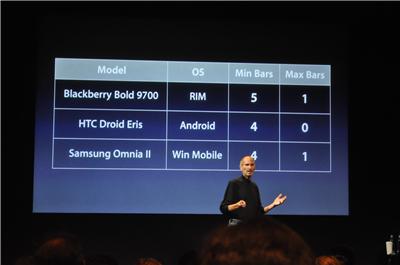
Yesterday Steve Jobs told many interesting facts about antenna issues and iPhone 4. Those who doesn't want to watch the video from the event , you can study the next list:
- Over 3M iPhones 4 were sold since its release three weeks ago;
- The antenna issue can be reproduced on any other phone. The details can be found ;
- Apple has special testing rooms, which cost it $ 100 million. You can learn more about it on Apple's new webpage ;
- Only 0.55% of all iPhone 4 users complain on antenna issue;
- AT&T return rate with the iPhone 3GS was 6.0%, with the iPhone 4 - 1,7%;
- The proximity sensor problem will be fixed in the next update;
- White iPhone will be shipped at the end of July;
- On July 30th iPhone sales will be launched in 17 more countries.
Here's what hackers say about new firmware iOS 4.0.1
Here's what hackers tweeted about new Apple firmwares 4.0.1 for iPhones and 3.1.2 for iPad:
DevTeam:
As with *any* new FW, jailbreakers + unlockers must avoid this upcoming 4.1 update until our tools are updated
3GS, ipt3G, iPhone4 users (regardless of current FW or JB status) should backup 4..0 SHSH blobs http://is.gd/dskh9 soon
MuscleNerd:
Obviously avoid today's 4.0.1 update until JB tools are updated. Luckily, no baseband change so ultrasn0w lives on

each FW version has unique blobs. But using http://is.gd/dskh9 you can get 4.0 blobs on PC while you stay at 3.1.2
Hah for those iPhone3G or ipt2g(non-MC) users at 4.1beta1: use redsn0w from 2 wks ago to JB http://is.gd/dstU3

Apple releases new firmwares: iPhone iOS 4.0.1 and iPad 3.2.1
Apple has just released iOS 4.0.1 for iPhone 3G, iPhone 3GS and iPhone 4. The free update fixes the issue with signal indication - the math formula to display the iPhone's service signal bars. Official changelog for iOS 4.0.1:
- Improves the formula to determine how many bars of signal strength to display
The updates for the iPad OS 3.2.1 are:
- Improved Wi-Fi connectivity
- Fixed an issue that could prevent copy and paste of single-page PDF attachments in Mail
- Addressed an issue that could cause video playback to freeze
- Improved reliability of video-out when using iPad Dock Connector to VGA Adapter
- Added Bing as an option for Safari's search field
You can get the update right now via these links:
- iPhone 4 -
- iPhone 3GS -
- iPhone 3G -
- iPad -
Here is a screenshot of the new signal bars:
 Leave a comment, read comments [1]
Leave a comment, read comments [1]
